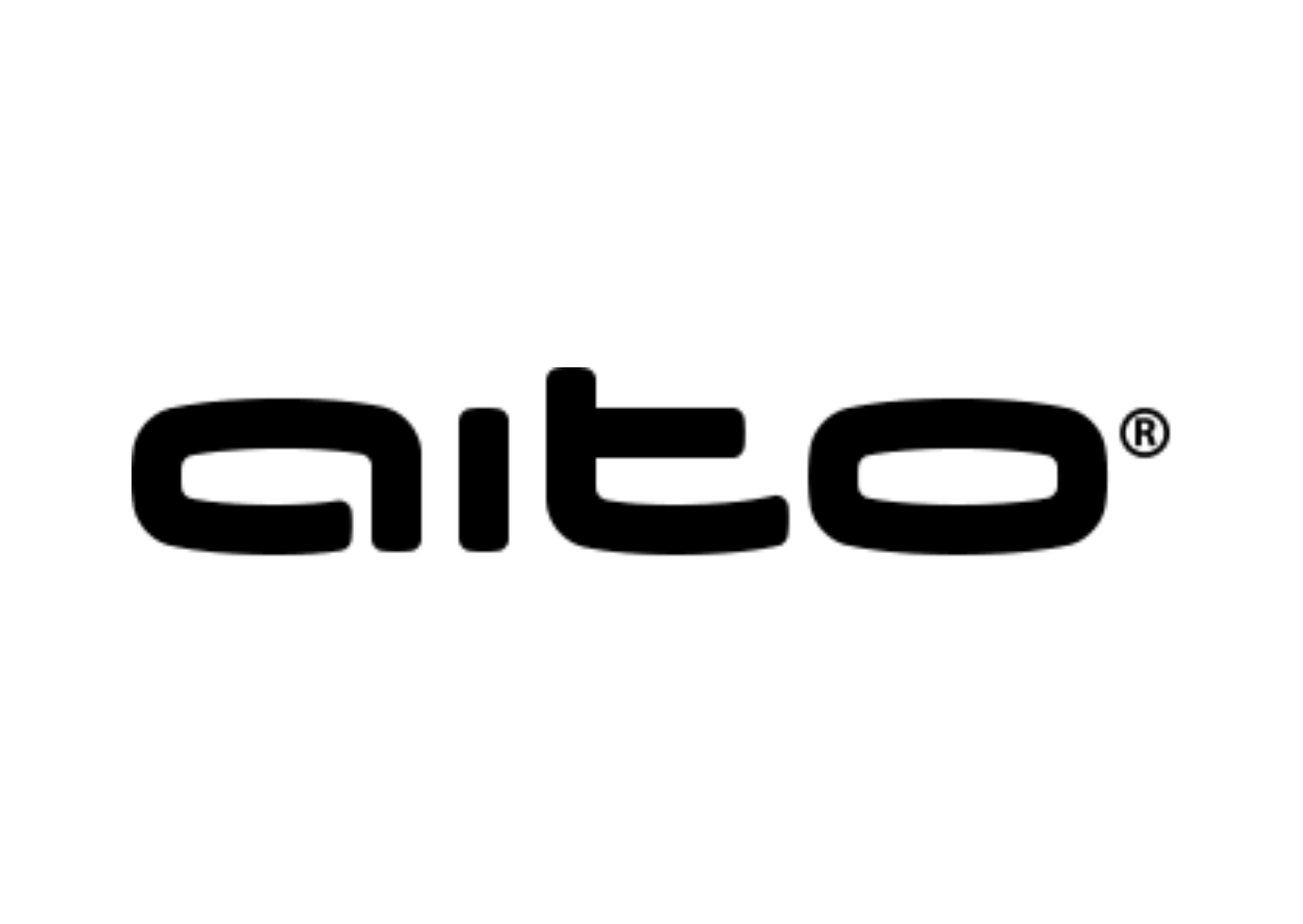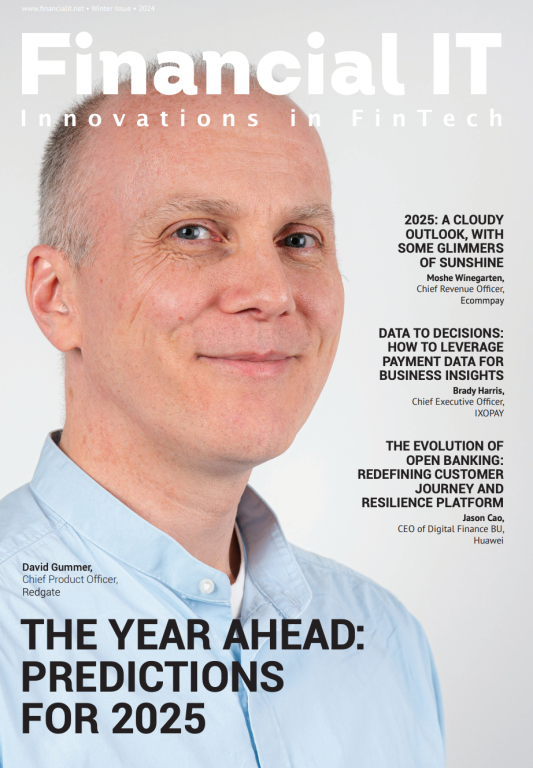Published
- 03:00 am

Monday, JP Morgan Chase Chairman and CEO Jamie Dimon doubled-down on his personal stance against Bitcoin, saying that he believes it to be ‘worthless’ at an Institute of International Finance event, according to CNBC Pro. He further compared Bitcoin to cigarettes, something that is widely known to be bad for a person’s health, yet still regulated and sold on the free market. In that vein, he reiterated that the company plans to give clients access to the market, regardless of his personal feelings.
“Worth is a measure of value. An item is worth whatever somebody else will pay for it. Remember when pet rocks were a booming, multi-million-dollar business? Gary Dahl was selling 100,000 pet rocks a day at his peak. He made $.95 per rock. You might think that a pet rock is worthless because you can go out to your backyard and dig one up. Yet people were willing to pay for them. People believe in Bitcoin. They believe in its value. I applaud Jamie Dimon for giving his customers access to the market, but his characterizing Bitcoin as ‘worthless’ is factually incorrect. It’s trading at over $50,000,” opined Richard Gardner, CEO of Modulus, a US-based developer of ultra-high-performance trading and surveillance technology that powers global equities, derivatives, and digital asset exchanges.
“Jamie doesn’t like Bitcoin, and that’s okay. But, saying that Bitcoin is worthless is akin to saying that coffee futures are worthless because you don’t understand how people could ever pour the stuff down their gullets each morning --- or that you are fundamentally opposed to caffeine. And, yes, it is exactly as silly as it sounds. This isn’t a debate on whether Jamie’s opinion on the long-term prospects for Bitcoin is right or wrong --- and we could have that discussion. But, this is altogether different. This is a matter of fact and fiction, and, as of Monday when he made the statement, Jamie was selling fiction,” Gardner said.
“Like Ronald Reagan said, ‘facts are stubborn things.’ The facts are in, and Jamie isn’t even close to accurate. One of the problems that cryptocurrencies have faced is the sheer volume of misinformation which is spreading about them. And not just from the Twittersphere. From major CEOs, from congressmen, from thought leaders. Then, on the other end of the spectrum, you have crypto ‘advocates’ like John McAfee propping up certain cryptocurrencies for kickbacks. Neither is good for the industry. The industry is built on the back of some of the most innovative technologies we’ve seen since the dawn of the internet. Regardless of your thoughts on Bitcoin, the technology is sound, here to stay, and completely transformative,” Gardner said.
Modulus is known throughout the financial technology segment as a leader in the development of ultra-high frequency trading systems and blockchain technologies. Over the past twenty years, the company has built technology for the world’s most notable exchanges, with a client list which includes NASA, NASDAQ, Goldman Sachs, Merrill Lynch, JP Morgan Chase, Bank of America, Barclays, Siemens, Shell, Yahoo!, Microsoft, Cornell University, and the University of Chicago.
“There are places across the globe --- old mill towns that have never quite rebounded economically, certain population centers in major economic decline, developing economies, and so many other areas. They need to rebuild their economies and, for them, paying attention to the financial tech sector could diversify their economic strength and promote long-term viability. We are at the dawn of the digital assets movement. They aren’t going anywhere. Especially as CBDCs are beginning to rise. We’re moving towards digital currencies fast. And the pandemic’s acceleration of financial digitization has only added fuel to the fire. We must end the misinformation era,” Gardner said.
Related News
- 05:00 am

- Today, Creditspring launches ‘Step’, a new credit builder product which helps people improve their credit score, restore their financial health and to access affordable forms of credit.
- This comes as new Creditspring research finds that 28% of 18–34-year-olds are unaware of how to improve their credit score.
- Step offers near-prime borrowers who struggle to access mainstream credit the opportunity to build credit profile steadily and affordably, improving their chance of being eligible for more affordable borrowing options in the future
Subscription loan provider, Creditspring, launches Step, a new credit builder product that helps members gradually improve their credit score without running the risk of incurring further debt. With new Creditspring research finding that over a quarter (28%) of 18–34-year-olds are unaware of how to improve their credit score, young borrowers are set to benefit from this accessible, easy-to-use solution.
Step, which is the industry’s first credit builder product where the issuer takes on risk through loans borrowed, offers members a small, no-interest loan in exchange for a fixed monthly fee, with an individual’s permission, shares information on members’ borrowing data with credit rating agencies to help people build their credit score in a low-risk way.
The product has been launched in direct response to the rise of ‘questionable’ credit builders in the UK. People are signing up and paying monthly fees to these companies believing it will improve their access to credit, but the ‘credit score’ that these companies help improve is not even one that lenders ever see. They are preying on the confusion around credit scores and are just another example of companies tricking people who are looking for support.
Step is designed to benefit the UK’s 10-14 million near-prime borrowers whose credit files make it harder for them to access mainstream credit products. This forces many to turn to higher cost, short-term alternatives – such as payday lenders or guarantor loans – which often come with extortionate interest rates and hidden fees and charges. In fact, unaffordable credit was the source of a third of all complaints to the Financial Ombudsman Service last year and the most common issue for customers. Difficulty repaying loans can lead to a spiral of debt, and in turn, negatively affect an individual’s credit score, leaving prospective borrowers with even fewer options the next time they need credit.
At present there is confusion and worry around credit scores, particularly among younger generations, with a third (33%) of individuals concerned that the financial impact of COVID-19 has negatively affected their credit score. For these individuals, Step provides no-interest loans, allowing customers to build their credit score to help improve their chances of being accepted for future credit – such as a mortgage – later in life. Members pay a fixed cost of £5 per month, and receive a first advance of £100, followed by a second advance of £200 over a 12-month period, with repayments reported to credit rating agencies.
Neil Kadagathur, Co-Founder and CEO of Creditspring, comments: “Step offers our members an accessible and affordable method of building their credit profile, with no hidden charges to contend with. We want to empower near-prime borrowers with the tools to make more informed financial decisions that contribute to better overall financial health in the long term because we think our job is done when our customers don’t need us anymore. It’s our goal to help our members get better access to mainstream, affordable credit products after using Step to improve their credit profile.”
Related News
- 08:00 am

The outbreak of COVID-19 has seen the world face extraordinary challenges to public health and the global economy. The pandemic has also driven unprecedented levels of cyber and financial crime.
The pandemic saw whole sectors of our economy and society move online overnight. This rapid and unplanned transition to remote working gave criminals an unprecedented opportunity scam and defraud the public. Criminals preyed on weakened IT security to access sensitive information. By impersonating legitimate businesses or government agencies, criminals could request payments or otherwise deceive customers through phishing tactics, thereby compromising the authorities’ ability to act swiftly in enforcing effective Anti-Money Laundering and Combating the Financing of Terrorism (AML/CFT) regulations.
The impact of COVID-19 has further proliferated the demand for cryptocurrency where cases of fraudulent trading and investment increased. A notorious example is the 2021 $1.1 billion Crypto Ponzi scheme Wotoken, where the culprits attracted around 715,250 investors by promising unrealistic returns and low menaces using non-existent algorithmic trading software. The culprits were able to continue their operation by reaping funds from new members and transferring them to old investors.
In 2020, the Central Bank of Bahrain (CBB) issued a warning about a fraudulent organization named ‘Bahrain.bitcoin’ who were involved in unlawful cryptocurrency trading. In attempts to deter similar occurrences, the CBB asserted that appropriate precautions must be taken prior to transacting with any entity and that these are in compliance with the CBB Rulebook regulations and the CBB and Financial Institutions Law of 2006 requirements.
Pursuant to the publication of the CBB’s guidance for financial institutions in May 2020, the CBB and the Financial Action Task Force (FATF) have stressed the importance of alleviating financial crime risks and implementing effective control measures. The FATF affirmed that coordination between governmental bodies and the private sector is crucial to curtailing illegal activity. Closer collaboration means that AML/CFT supervisors will be better equipped to identify and monitor risks.
The CBB advised that employees must promptly file a Suspicious Transaction Report where they suspect a customer is engaging in money laundering/ terrorist financing (ML/TF) related activities. In doing so, the entity is able to respond to the risks or potential misconduct efficiently. To further mitigate ML/TF risks, the FATF stated that a more rigorous approach towards verifying a person’s identity should be enforced where reporting entities can accept recently expired and government-issued ID.
In instances where face-to-face customer onboarding has become strenuous, the CBB recommended that digital onboarding be implemented with accordance to its procedures. This includes ensuring that entities comply with the Financial Crime Module and that frequent risk assessments are conducted. The FATF further added that biometric authentication, facial recognition, and three-dimensional face matching algorithms are appropriate methods for verifying customer ID securely.
Considering the heightened issues generated by the pandemic, it is imperative for private and governmental entities to adhere to the CBB and FAFT guidelines. Not only should employees be better trained to identify ML/TF risks to further impede unprecedented and illicit activities, entities must warn caution their customers and warn them about phishing emails and other communication outlets.
Ronald Langat, Partner and Head of Banking and Finance, Al Doseri Law
Maryam Alhashemi, Associate, Al Doseri Law
https://www.aldoserilaw.com/
Related News

Isabel Davie
Account Executive at iseepr
Having already swept through numerous industries around the world, the sustainability revolution is now taking the banking sector by storm. see more
- 03:00 am

The Bids Wanted in Competition (BWIC) process completes on the WIC trading platform
Etrading Software, the independent, global provider of technology-led solutions designed for financial institutions and industry initiatives, in partnership with Artis Holdings Limited, a technology provider of electronic platforms and tools for the Loan market, today announces it has completed its opening BWIC (Bids Wanted in Competition) process via the live WIC trading platform for the first onboarded clients.
“The WIC trading platform is the latest step toward electronification of workflows for the loan market, providing market participants with an automated, reliable and user-friendly choice when trading loans,” said Grant Wilson, Managing Partner of Etrading Software. “Together with market participants, our goal is to better meet the demand for efficient, streamlined loan trading while continuing to preserve the existing Dealer/Client relationship. With the completion of the opening WIC on the platform we have had the invaluable opportunity for live feedback from trading desks and will continue to focus on further enhancing the platform by deploying new innovative trading functionality that will enhance the trading experience and ease the manual workflows and risks in the current, spreadsheet based model.”
The WIC Platform semi-automates BWIC/OWIC administration by removing the clunky and often risky email/spreadsheet sharing process across multiple Sell-side and Buy-side, whilst respecting and enhancing the current Dealer/Client information and value chain. It enables all parties to experience a streamlined version of the existing process and significantly shortens the WIC process by hours - if not days - avoiding long periods of no trading in the names in a WIC, as well as a lengthy timeframe in which bids/offers are valid for.
The new system also creates a robust infrastructure for participating in WICs, whilst preserving the market accepted DNA of the WIC process. This significantly reduces the historic operational risks for all parties involved by removing the bulk of the manual data sharing and data keying from multiple spreadsheets and provides instantaneous calculation of best execution options, greater accuracy of cover prices and timing of release of cover prices as well as internal and external compliance reporting. The tool also enables management to understand flows in real-time and will provide a valuable source of data often lost through the existing manual processes.
Victoria Mcllroy, Client Relationship Manager, said: “We are the first platform globally to facilitate multilateral, electronic BWIC/OWIC trading in loans. Our goal is to continue to work with our clients, both existing and new, to enhance the execution workflow in loans by bringing efficiency, automation and better access to data and electronic tools to remove the manual processes which hold back the loan market.”
Etrading Software designs, builds and operates technology solutions, framing, facilitating and navigating complex decision-making structures – from incubation to execution – that provide financial institutions and industry initiatives vendor-neutral technology solutions tailored to the needs of the OTC markets. From implementation to ongoing operational support and system governance, such cases include Neptune Networks Ltd, the Derivatives Service Bureau (DSB) Ltd and most recently, the Artis Holdings WIC platform.
Related News
- 08:00 am

Intuit QuickBooks Will Integrate Envestnet | Yodlee’s Data Aggregation Capabilities Into Its Accounting Software, Enabling Customers to View All Their Finances in One Place
Envestnet | Yodlee, a leading data aggregation and analytics platform for financial services, and Intuit QuickBooks, the global leading provider of financial planning and accounting software, have formed a collaboration to provide aggregated financial data and information to small businesses in multiple countries around the world, helping the financial management software company expand into new territories internationally.
The collaboration will enable Intuit QuickBooks to leverage data feeds with new financial services providers as well as increase its presence in multiple countries over the next three years.
Envestnet | Yodlee will provide Intuit QuickBooks customers with the ability to connect to their banking data. It will allow self-employed and small businesses using the financial management software to save time, reduce costs, as well as provide a complete view of their business’ finances, enabling them to make more informed business decisions.
“Through Envestnet | Yodlee’s collaboration, Intuit QuickBooks will provide its customers with a reliable and secure way to access their financial data,” said Jason O'Shaughnessy, Head of International Business at Envestnet | Yodlee. “Our collaboration with Intuit QuickBooks is another example of Envestnet | Yodlee helping to build a financial ecosystem that supports financial wellness and it enables access to digital innovation in markets across the globe.”
“Envestnet | Yodlee’s financial data network will support our ability to expand in multiple countries and provide our customers with secure and automated direct connections, which helps make their lives easier when it comes to reviewing their business’ performance and preparing for compliance. We are excited to cooperate with Envestnet | Yodlee to accelerate our mission of Powering Prosperity around the World,” said Steve Kemp, Head of Financial Institution Partnerships - Australia and Emerging Markets, at Intuit QuickBooks.
Related News
- 01:00 am

Service providers can now deploy gateway security services for the entire home in weeks, not months.
Cyber security provider F-Secure, KAON Broadband, a source of integrated solutions featuring home network devices and associated revenue-generating services, and Incognito, a leading global provider of broadband service orchestration software solutions, have announced a new combined offering that delivers a fully integrated end-to-end connected home security offering with endless expansion capabilities.
The joint proposition enhances service delivery, remote management, and security for communication service providers by combining KAON’s Quantum Platform, Incognito’s Digital Experience (DX) Auto Configuration Server solution, and F-Secure SENSE.
“For service providers, routers aren’t just connectivity hardware anymore. They’re the key to both securing their customers’ devices and delivering the value-added services that ensure future success,” said Steven Offerein, Director, Business Development at F-Secure. “Service providers want the best-in-class solution but have challenges delivering the services individually. This collaboration makes it possible to roll out a new connected home security offering in weeks, not months.”
KAON’s Quantum Open Standard Platform enables service providers to seamlessly add new services. The App Store features a cross-section of services available through an open source-based license free platform.
“This joint proposition dramatically simplifies the process of rolling out connected home security through our platform,” said Carlos Santos, KAON’s Head of Products. “The containerization combined with a standards-based environment enables the fast time to market, scalability and long-term flexibility that service providers have been seeking.”
Incognito’s DX Auto Configuration Server solution ensures containerized services on the routers get installed, activated, and are easily updated so that F-Secure SENSE always provides best protection capabilities against the ever-changing threat landscape.
“Remote management is a foundational delivery mechanism that changes the game for service providers who want to maximize the value of routers by offering dynamic value-added solutions like connected home security and other virtualized applications for smart connected homes and Internet of Things (IoT) for enterprises,” said Pete Koat, Chief Operating Officer at Incognito. “Incognito’s solution comes with a set of features that make it easier for broadband service providers to enter the exciting new market of smart home services using USP. Even more importantly, it’s an enabler for future growth.”
F-Secure SENSE allows consumers to easily protect and easily manage the security of the internet-enabled devices in their home—from computers to smart TVs to baby monitors.
According to F-Secure’s Offerein, the partnership ties multiple critical services together into one simple deployment.
“Thanks to our co-operation with Kaon and Incognito, we’ve created an out of the box solution where every aspect of its lifecycle management has been considered. This covers everything from pre-integration, to launch, to keeping the SENSE solution always up-to-date. That’s the winning formula to deliver best protection and our award-winning security to consumers,” he said.
Related News
- 01:00 am

FSS (Financial Software and Systems), a leading global provider of integrated payment products and a payments processor has partnered with Equicom Savings Bank (EqB) - one of the leading banks in the Philippines to address online fraud and to boost e-commerce growth.
Under this partnership, FSS will provide its Secure3D, an intelligent payment authentication solution, to create a safer and seamless way for consumers to transact in the digital economy. The Philippines is one of the fastest-growing e-commerce markets in Southeast Asia, with transactions projected to grow from US$ 4 Billion in 2020 to US$ 15 Billion in 2025.
With increasing adoption, fraud attack vectors have grown in sophistication, and costs are on the rise, amounting to 2.03% of overall annual revenues. FSS Secure3D, modelled on EMVCo 3.2 guidelines, will help Equicom verify customer identity and flag fraudulent transactions before a payment transaction is authorized.
Speaking on the collaboration EqB Vice President and Head for Consumer & Small Business Lending Division Roussel E. Larger, noted; “Fraud is an ever-evolving problem, so we need to ensure that our prevention technology is evolving even better to maximize protection. Our partnership with FSS enables us to leverage its experience and technology to mitigate fraud threats and create low-friction trusted experiences that customers expect, providing both protection and opportunities to increase sales and revenue.”
For his part, FSS PayTech COO Krishnan Srinivasan said; “The payments market is fiercely competitive, so it is of paramount importance for financial institutions to layer intelligent counter-fraud measures to lower fraud costs. Our globally proven Secure3D delivers a solid technology foundation to keep ahead of fraud and aligns with core operational and risk strategies, enabling Equicom balance fraud detection without compromising the customer experience.”
Modelled on EMVCo 3DS 3.2 guidelines, FSS Secure3D exploits rich data streams exchanged between merchants and issuers to continually learn customers’ transactional DNA and assess risk based on a combination of location, merchant, transaction, and device-related attributes.
This technology helps systemically isolate higher-risk transactions while reducing the need to interrupt the consumer’s purchase. As for higher-risk transactions, FSS Secure3D dynamically provides additional verification checks such as biometric-based identification or a one-time passcode. FSS offers Authentication As-a-Service on FSSNeT, where FSS assumes responsibility for implementation, integration, certification, testing, and technical operations. This practice alleviates costs as well as the regulatory compliance burden. Benchmarked to process 8,000 transactions per second, FSS Secure3D assures faster processing time and higher sales conversion. FSS Secure3D is certified by EMVCo and key card schemes like Visa, MasterCard, and Amex.
Related News
- 07:00 am

- Company raises further funding round to bring its integrated finger sensing and haptic touch solution to market
- Largest fundraise to date follows appointment of Nedko Ivanov as CEO
- Investment led by KBC Focus Fund and FORWARD.One with support from current investors
Aito announces its largest investment round to date, led by current investors including KBC Focus Fund, FORWARD.One and Innovation Industries. The raise of more than €4 million will help the company ramping up and bring its award-winning product to market with several leading brands in 2022. This new investment reflects the significant growth potential for Aito in the haptic feedback market.
Aito has created an integrated, scalable technology that delivers the most accurate and richest haptic experience. The result is a highly intelligent solution that enables consumer technology brands to build products such as laptops, accessories, display screens, gaming devices and AR/VR solutions that transform user experiences.
At less than 2.4 millimetres, Aito’s integrated finger sensing and haptic feedback solution is the industry’ slimmest haptic touchpad, providing ultra-local haptic feedback ‘only where you press’ enabling seamless design alongside bigger batteries in laptops.
Aito’s technology can be scaled to offer the largest edge-to-edge touchpads in the industry and provides consumer technology companies with new design options to create more compact and versatile laptops, accessories, displays and other devices delivering new user experiences based on tactile feedback.
Recently appointed CEO of Aito, Nedko Ivanov, comments: “This new round of funding reflects the enormous potential of the haptic touch market and is a testament to progress made by the Aito team. Our integrated finger sensing and haptic feedback product is ready to be commercialised in a range of consumer technology devices including the lucrative laptop market. This investment makes the global roll out of our product a reality.”
“With almost 80 patents, we have built a significant portfolio of intellectual property in electronic sensing, control, signal processing and mechanical construction. This enables us to provide a fully integrated haptic solution, allowing consumer technology companies to create intuitive touch experiences housed in elegant designs. This investment, combined with the team’s expertise in bringing haptic solutions to market, provides us with the scope to truly extend our reach in the global market and transform how consumer electronics devices are designed and used.”
Rudi Severijns from KBC Focus Fund comments: “Aito has invested significantly in building the most integrated and customisable finger sensing and haptic feedback solution for consumer electronics devices. This market is set for significant growth and this investment will fuel Aito’s drive to offer companies new ways to deliver an engaging and reliable user interface between humans and consumer technology devices”.
Paul Pruijmboom from FORWARD.One comments: “Analysts predict the haptic touch market will double in size within the next five years and with the industry’s slimmest and most responsive solution, Aito can benefit from this fast growth, enabling consumer technology brands to offer stunning new experiences to users and delivering strong returns to its investors.”
Related News
- 09:00 am

Next-gen core banking provider Yobota has announced its move into the Banking-as-a-Service (BaaS) market through a new partnership with Chetwood Financial.
BaaS describes a business model in which licensed banks grant companies access to their modular banking services, generally via application programming interfaces (APIs). This allows businesses to develop their own financial offerings, such as lending and payment services, on top of the BaaS provider’s regulated infrastructure.
London-based Yobota has partnered with Chetwood to intermediate a version of the bank’s new BaaS offering. The technology vendor provides the core banking system (CBS) that enables businesses to embed lending and deposit products into their proposition, and thereby offer fully compliant financial services to end-customers under Chetwood’s banking licence.
Yobota offers pre-packaged, regulatory compliant products and processes built on top of its cloud- native CBS and quant engine. It also provides an extensive suite of APIs required for integrated banking services.
By removing the operational concerns involved and managing the user experience, Yobota’s innovative BaaS offering reduces time to market for those without a banking license and infrastructure. Its flexible architecture allows businesses to configure bespoke, intelligent, and scalable financial products.
The vendor’s BaaS components include core banking provision, APIs that can be deployed against bank partners, regulatory coverage, white labelling, consultancy, and partnerships.
Ammar Akhtar, CEO of Yobota, said: “This move marks a significant milestone in Yobota’s relatively short history, and we’re proud to have partnered with Chetwood at this critical stage in our journey.
“We entered the BaaS space knowing we had something unique to offer. By combining our innovative core banking platform and the proven foundation of our bank partners, businesses can quickly and efficiently build customised, secure and scalable financial products.
“A cloud-based, modular, and API-driven approach to architecture is fundamental to delivering BaaS, and at Yobota we have kept these requirements sacred in the creation of our platform. Our team of developers can oversee the technical challenges involved in bringing new offerings to life, while our financial expertise means our platform meets strict compliance and ongoing regulatory requirements.”
Andy Mielczarek, Founder and CEO of Chetwood Financial, said: “Chetwood is proud to be opening our banking systems to third parties who want to create better end-to-end journeys for their customers. Together with experienced partners like Yobota, we are able to handle both the regulatory and technological complexities involved in helping brands embed financial services directly into their propositions.”
Ammar and Andy will be attending the AltFi Lending Forum on 4th November 2021, hosting a fireside chat to discuss ‘Banking as a Service… and a Solution’.









